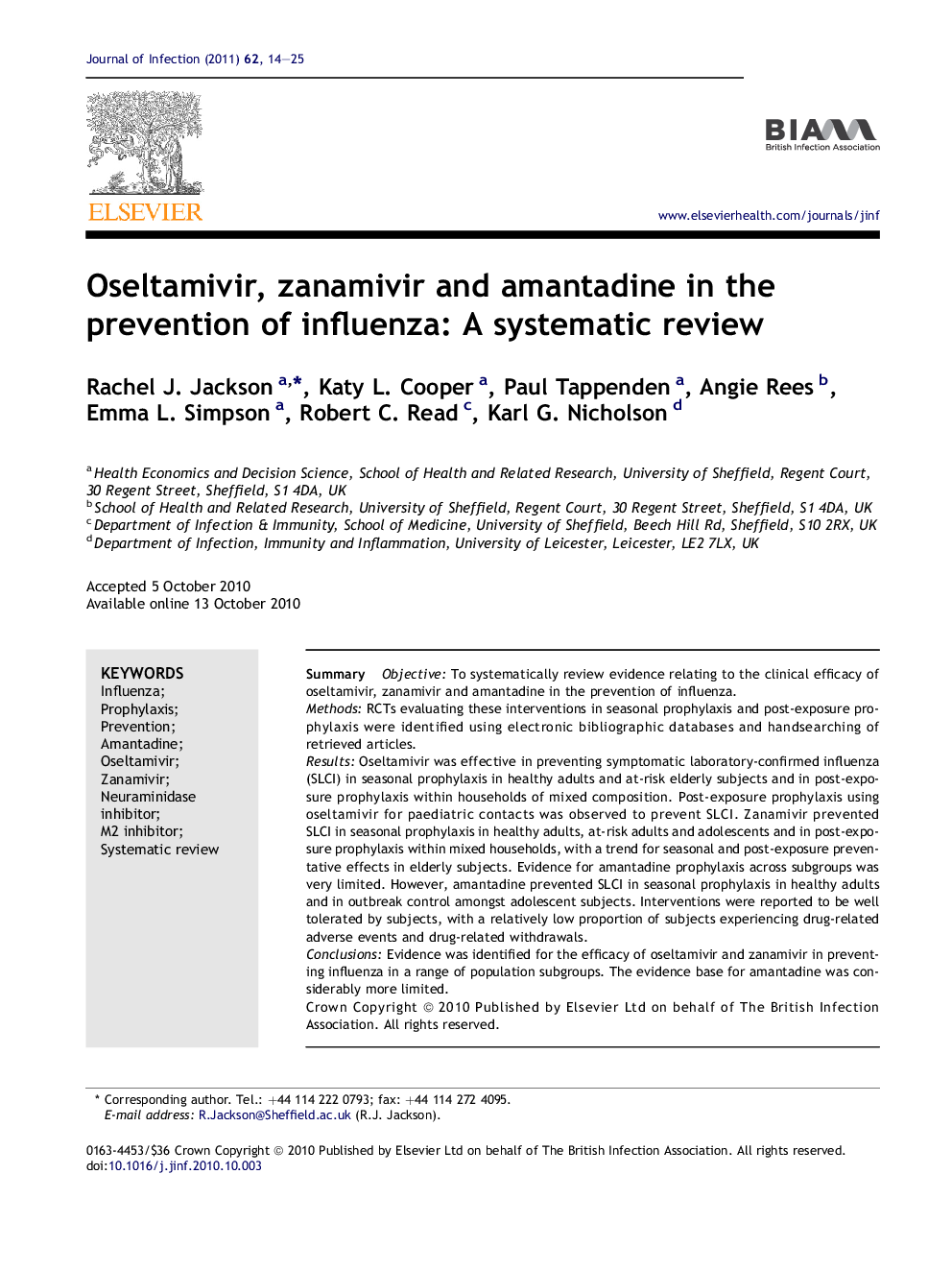| Article ID | Journal | Published Year | Pages | File Type |
|---|---|---|---|---|
| 3375545 | Journal of Infection | 2011 | 12 Pages |
SummaryObjectiveTo systematically review evidence relating to the clinical efficacy of oseltamivir, zanamivir and amantadine in the prevention of influenza.MethodsRCTs evaluating these interventions in seasonal prophylaxis and post-exposure prophylaxis were identified using electronic bibliographic databases and handsearching of retrieved articles.ResultsOseltamivir was effective in preventing symptomatic laboratory-confirmed influenza (SLCI) in seasonal prophylaxis in healthy adults and at-risk elderly subjects and in post-exposure prophylaxis within households of mixed composition. Post-exposure prophylaxis using oseltamivir for paediatric contacts was observed to prevent SLCI. Zanamivir prevented SLCI in seasonal prophylaxis in healthy adults, at-risk adults and adolescents and in post-exposure prophylaxis within mixed households, with a trend for seasonal and post-exposure preventative effects in elderly subjects. Evidence for amantadine prophylaxis across subgroups was very limited. However, amantadine prevented SLCI in seasonal prophylaxis in healthy adults and in outbreak control amongst adolescent subjects. Interventions were reported to be well tolerated by subjects, with a relatively low proportion of subjects experiencing drug-related adverse events and drug-related withdrawals.ConclusionsEvidence was identified for the efficacy of oseltamivir and zanamivir in preventing influenza in a range of population subgroups. The evidence base for amantadine was considerably more limited.
